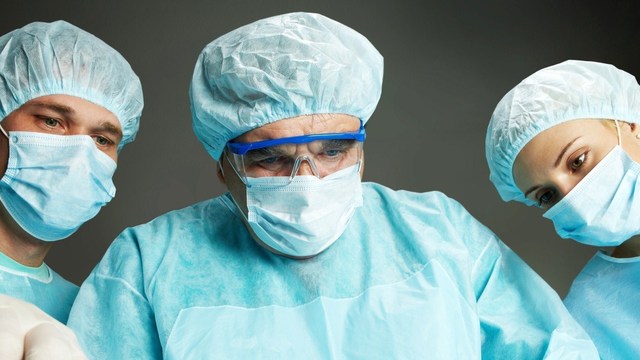While no one ever wants to find out they have cancer, the good news about uterine cancer is that it generally is readily detectable, and is often caught in the early, easier-to-treat stage. Uterine cancer typically occurs in women who have already gone through menopause, but could happen before menopause.
Symptoms of uterine cancer may include bleeding between periods, bleeding after menopause, a mass in the vagina, pain or feeling of fullness in the abdomen, and frequent urination.
If you suspect you may have uterine cancer, it is important to discuss it with your doctor to assure the best possible prognosis. Some questions you may want to ask are:
- What kind of tests do I need? The doctor will do a pelvic exam, or if an abnormality is suspected, your doctor may use transvaginal ultrasound to form a complete opinion of the reproductive organ's status. Your doctor also may use other forms of testing such as x-ray, CT scan, blood, or cancer antigen (CA)-125 test.
- What type of uterine cancer do I have? There are two types of uterine cancer: Endrometrial – begins in the cells lining the uterus (endometrium); Uterine sarcoma – a rare type of cancer begining in the muscle (leiomyosarcoma) or other tissue of the uterus (endometrial stromal sarcoma).
- What type of treatments are available? Options for treatment your doctor may consider depending on your particular case could include surgery (hysterectomy), radiation therapy, chemotherapy, and hormone therapy. Patients also may decide to take part in a clinical trial (new treatment in research status).
- Will I have to stop working? Some treatment may require you to take time off work. You may need to discuss this with your employer when the whole picture of your condition and treatment is determined.
- I have these other health conditions. How can I best manage them together? If you have other health conditions, you will need to discuss with your doctor options particular to your case.
- Are there any restrictions I need to follow? Throughout the course of treatment, you may not feel well. Now, more than ever, it will be important to eat well and try to manage your stress. Protein-rich food may help you feel better quicker because of their ability to build and repair body tissue. You may want to pack in the calories with whatever you eat since you may not be eating much (for example, peanut butter on toast). Bear in mind that while you may have an aversion to something this week, next week your opinion may change, so try and keep an open mind.
- Should I see a specialist? What will that cost, and will my insurance cover seeing a specialist? Should I get a second opinion? Be your own best advocate! If you want a second opinion, ask for one. Many doctors welcome a second opinion contrary to what you might think. Many insurance companies may cover additional testing performed by a different doctor if your doctor requests it. Some insurance companies even require a second opinion. The short delay taken in getting all the information to allow you to feel more confident and in control of your health in most cases will not be detrimental to your treatment.
- Is there any research I can do on my own and what sources would you recommend? A cancer diagnosis can be scary, frustrating, and depressing. Your doctor can suggest their favorite reputable web sites and support groups for obtaining more information and helping you cope with ovarian cancer.
This information is not meant to be a replacement for talking with your doctor. Talk with your team of doctors to get the full picture for your particular case.
Resources:
www.mayoclinic.com Endometrial Cancer
www.cancer.gov Uterine Sarcoma
www.wcn.org Uterine Sarcoma
Do you have a question about cancer? Check out EmpowHER’s cancer page. Sign-up, post a question, share your story, connect with other women in our community and feel EmpowHERed!
Christine Jeffries is a writer/editor for work and at heart, and lives in a home of testosterone with her husband and two sons. Christine is interested in women’s health and promoting strong women.




